Your Lifestyle Will Determine Your Future
Joyce Cooper-Kahn, PhD
Attention Magazine February 2021
Download PDF
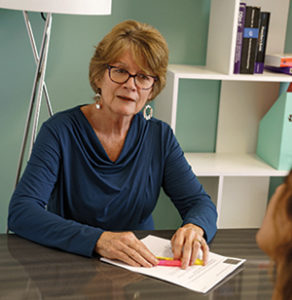 If you’re an adult with ADHD (or the parent or spouse of one), you’re probably all too familiar with the challenges of those with this diagnosis. You may also be aware of the ways that impulsiveness, motor restlessness, inattention, and executive functioning difficulties can impact lifestyle and health.
If you’re an adult with ADHD (or the parent or spouse of one), you’re probably all too familiar with the challenges of those with this diagnosis. You may also be aware of the ways that impulsiveness, motor restlessness, inattention, and executive functioning difficulties can impact lifestyle and health.
Decades of research on ADHD have moved the field to a better understanding of the risks that can accrue for individuals with ADHD over the course of their lifetime. Russell Barkley, PhD, for example, has written about the reduced life expectancy of individuals diagnosed with ADHD.
Acknowledging the importance of that data, Kathleen Nadeau, PhD, chooses to focus on what can be done to change the odds for adults with ADHD. In her keynote address at CHADD’s 2020 virtual conference, Dr. Nadeau highlighted the lifestyle changes and daily habits that can lead to a more satisfying, functional, and healthy life with ADHD. Below, we share some of the key takeaways of her keynote address, Your Lifestyle Will Determine Your Future: Brain-Friendly Habits Essential to Extending and Improving Your Life.
Build an ADHD-friendly posse
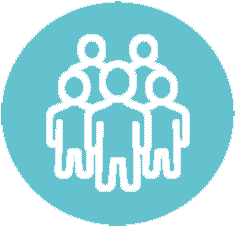 Above all, Dr. Nadeau is a proponent of building an ADHD-friendly posse—a group of people who supports and understands the struggles of adults with ADHD. Support groups, therapy groups, or informal groups of individuals who “get” ADHD can offer much-needed relief and acceptance after what is often a lifetime of negative feedback and criticism. Dr. Nadeau lists the emotional and practical ways that adults with ADHD can benefit from a posse:
Above all, Dr. Nadeau is a proponent of building an ADHD-friendly posse—a group of people who supports and understands the struggles of adults with ADHD. Support groups, therapy groups, or informal groups of individuals who “get” ADHD can offer much-needed relief and acceptance after what is often a lifetime of negative feedback and criticism. Dr. Nadeau lists the emotional and practical ways that adults with ADHD can benefit from a posse:
- We discover our strengths in interaction with like-minded people.
- Feeling misunderstood and criticized is the most damaging of all ADHD fallout.
- ADHD support allows us to learn from others.
- Support lowers our stress level.
- Support improves our endurance and problem-solving.
Build brain-healthy daily habits
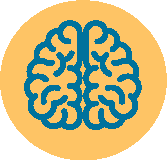 Dr. Nadeau went on to describe healthy habits that form the foundation of ADHD-focused life improvements and that are important aspects of any treatment for adult ADHD.
Dr. Nadeau went on to describe healthy habits that form the foundation of ADHD-focused life improvements and that are important aspects of any treatment for adult ADHD.
Building upon a convergence of research findings, Dr. Nadeau identified critical elements of an ADHD-friendly, healthy life. Many of her recommendations arise from research conducted by Dale Bredesen, MD, who sought to reverse cognitive decline through lifestyle changes. Dr. Bredesen’s pilot project with a small sample of adults found that cognitive decline could be reversed by improving sleep and nutrition, and by incorporating aerobic exercise and stress management into one’s life.
His preliminary findings bring a hopeful message regarding brain functioning and overall health, according to Dr. Nadeau, suggesting that changes in daily habits can tip the odds toward a healthier and longer life for adults with ADHD.
Get a good night’s sleep
 Sleep problems are common in all adults, and even more problematic for many adults with ADHD. Severe sleep problems may require the help of a specialist, Dr. Nadeau pointed out. However, she offered many strategies that adults can initiate on their own to improve sleep.
Sleep problems are common in all adults, and even more problematic for many adults with ADHD. Severe sleep problems may require the help of a specialist, Dr. Nadeau pointed out. However, she offered many strategies that adults can initiate on their own to improve sleep.
- Prepare for tomorrow so nagging thoughts don’t keep you awake—preview the next day so you know what’s coming up and are emotionally prepared rather than worried at bedtime.
- Avoid screen time for the last hour before bed—the blue light emitted by screens interferes with the production of melatonin, a naturally occurring hormone that promotes sleep.
- Develop a regular bedtime.
- Take a warm bath or shower to induce sleepiness.
- Try relaxation exercises, such as stretching or mindfulness.
- Read quietly.
- Use your phone to listen to music or podcasts to distract you from your busy mind.
- Avoid caffeine after lunch, and chocolate in the evening (due to its caffeine content).
Adopt brain-friendly nutrition
 Follow your good night’s sleep with a healthy, protein-rich breakfast and include protein-based snacks throughout your day. Protein is favored because it is metabolized slowly and is a good source of steady energy throughout the day. When energy wanes, individuals with ADHD may be more prone to impulsive decisions and to have more difficulty with learning.
Follow your good night’s sleep with a healthy, protein-rich breakfast and include protein-based snacks throughout your day. Protein is favored because it is metabolized slowly and is a good source of steady energy throughout the day. When energy wanes, individuals with ADHD may be more prone to impulsive decisions and to have more difficulty with learning.
Emphasizing that there is much more to explore related to nutrition, Dr. Nadeau discussed the importance of attending to overall nutrition and to consider supplementing with vitamins and minerals that have been found to support healthy brain functioning, including Vitamin B12, essential fatty acids, and Vitamin D.
Harness the power of aerobic exercise
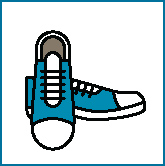 Daily exercise benefits everyone and can be especially helpful for those who are restless or hyperactive. Twenty to thirty minutes of aerobic activity leads to physiological changes that benefit learning, attention, and decision-making. Improvements in mood are also well-documented effects of aerobic exercise.
Daily exercise benefits everyone and can be especially helpful for those who are restless or hyperactive. Twenty to thirty minutes of aerobic activity leads to physiological changes that benefit learning, attention, and decision-making. Improvements in mood are also well-documented effects of aerobic exercise.
Take a green break
 Can you get outdoors for your exercise? If so, you get even more benefit, because being out in nature has been found to reduce ADHD symptoms. Green breaks, whether associated with exercise or not, appear to generate greater calm and improve focus. Even small changes, such as playing on grass instead of asphalt, have a positive effect.
Can you get outdoors for your exercise? If so, you get even more benefit, because being out in nature has been found to reduce ADHD symptoms. Green breaks, whether associated with exercise or not, appear to generate greater calm and improve focus. Even small changes, such as playing on grass instead of asphalt, have a positive effect.
Practice stress management
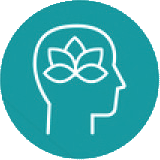 Individuals with ADHD may experience high levels of stress because of challenges with time management, money management, emotional regulation, and lifestyle decisions. So, stress management is a central feature of lifestyle changes that improve the lives of adults with ADHD. Dr. Nadeau suggested that a way to start on stress management is to do a self-assessment of what is causing stress.
Individuals with ADHD may experience high levels of stress because of challenges with time management, money management, emotional regulation, and lifestyle decisions. So, stress management is a central feature of lifestyle changes that improve the lives of adults with ADHD. Dr. Nadeau suggested that a way to start on stress management is to do a self-assessment of what is causing stress.
Are you raising children with ADHD? Do you have a long commute? Money problems? Marital or other family problems? Stress can come from many and varied sources, so your list may be a long one.
What can you change to eliminate some sources of stress? Perhaps you can move closer to your place of work or consolidate your debt to reduce your worries.
For the stress that you can’t eliminate, perhaps there are opportunities to reduce the stress level. For example, if you’re raising children with ADHD, there are classes that focus on strategies to reduce the conflict level and to promote easier interactions with your children. If you have marital conflict, there are ADHD-friendly programs to improve communication and ease struggles.
Adults with ADHD also benefit from mindfulness and meditation that is designed specifically for those with these challenges. Mindfulness in motion may be more acceptable for adults with ADHD than the idea of seated meditation. Simple deep breathing time-outs over the course of the day can also help to reduce your arousal level and restore calm feelings.
Create an ADHD-friendly environment
 Many adults with ADHD live with others who do not understand their ADHD. Dr. Nadeau pointed to common misconceptions that are toxic to those with ADHD, such as the belief that executive functioning problems are willful and could be changed if you want to. “If you tried harder, you could stop being late, you could stop losing your car keys, you could stop forgetting the things that I’ve told you.” Educate those close to you, perhaps by bringing them with you to an adult ADHD support group where they can hear the commonalities in the symptoms you share with others.
Many adults with ADHD live with others who do not understand their ADHD. Dr. Nadeau pointed to common misconceptions that are toxic to those with ADHD, such as the belief that executive functioning problems are willful and could be changed if you want to. “If you tried harder, you could stop being late, you could stop losing your car keys, you could stop forgetting the things that I’ve told you.” Educate those close to you, perhaps by bringing them with you to an adult ADHD support group where they can hear the commonalities in the symptoms you share with others.
It’s also important to learn collaborative problem-solving strategies, so that you can come up with workable, agreed-upon ways to handle common problems. ADHD-friendly solutions often involve creating daily habits and routines with lots of context cues as reminders. Dr. Nadeau points to the example of assigning chores that occur daily, rather than infrequent chores that are likely harder to remember.
Stick with Your Goals
Dr. Nadeau emphasized that making major lifestyle changes is not easy or quick. However, with time, persistence, support, and professional help, as needed, the changes will come.
Summarizing her approach, Dr. Nadeau offered guidelines for those challenged by adult ADHD.
- Take charge. Don’t rely solely on medication, or on advice from others. Create a healthy lifestyle and educate yourself about how to meet ADHD-related challenges.
- Take responsibility. Acknowledge your challenges and work to problem solve.
- Take heart. There are many individuals with ADHD leading successful, satisfying lives. Your goal is to become one of them!
- Laugh and forgive yourself. Your goal is not perfection. Your goal is to focus well on what matters most to you and manage the rest.
Joyce Cooper-Kahn, PhD, is a clinical child psychologist and coauthor of two books on executive functioning: Late, Lost, and Unprepared: A Parent’s Guide to Helping Children with Executive Functioning (Woodbine, 2008) and Boosting Executive Skills in the Classroom: A Practical Guide for Educators (Wiley, 2013). She is co-chair of Attention’s editorial advisory board.
Kathleen Nadeau, PhD, is the founder and clinical director of the Chesapeake ADHD Center of Maryland, one of the largest and oldest ADHD specialty clinics in the United States. An internationally recognized authority on ADHD, she is a frequent lecturer both in the United States and abroad. She has served on the professional advisory boards of both CHADD and ADDA, and joined the CHADD Hall of Fame in 1999 for her groundbreaking work on women and girls with ADHD. Dr. Nadeau is the author or coauthor of over a dozen books that address ADHD issues across the lifespan, from her bestselling book for children, Learning to Slow Down and Pay Attention, to her current research and writing project on older adults, to be titled Still Distracted After All These Years.
ADDITIONAL READING
Barkley, R.A. Health Outcomes of ADHD: Is There an Effect on Life Expectancy? Attention, February 2019, 14-15.
Bredesen DE. Reversal of cognitive decline: a novel therapeutic program. Aging (Albany NY). 2014 Sep;6(9):707-17.
Other Articles in this Edition
I Don’t Speak to You That Way. Please Show Me Some Respect!
Is Exposure to Nature Related to ADHD Symptoms?
Addressing Barriers and Disparities: Black Americans and ADHD
Ten Ways You Can Help Your Child Succeed Socially When They Return to School
Help Your Child with Screen Resistance or Anxiety in Distance Learning
Promoting Resilience Among Children and Teens During the COVID-19 Pandemic
Your Lifestyle Will Determine Your Future
Evidence-Based Coaching for Adults with ADHD
